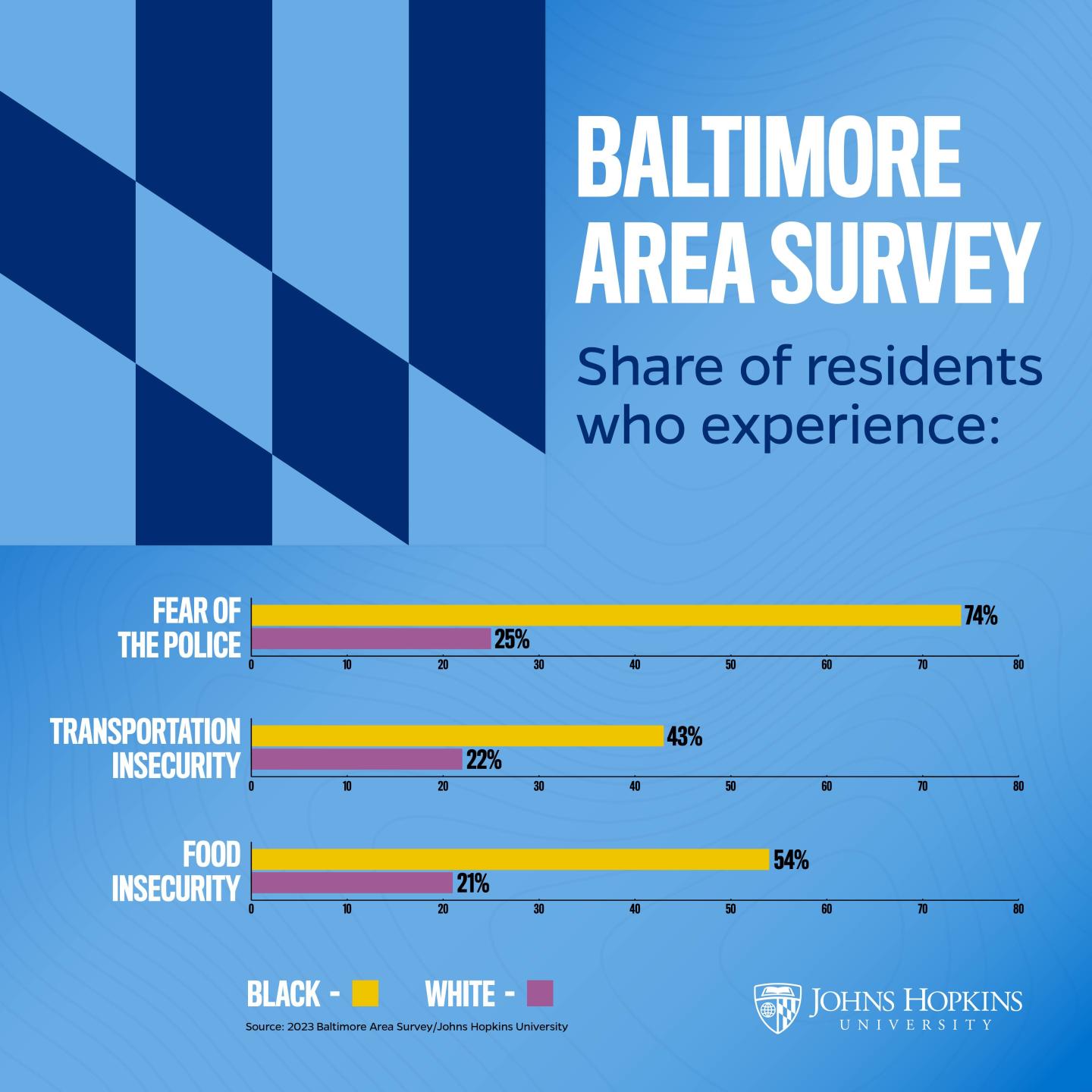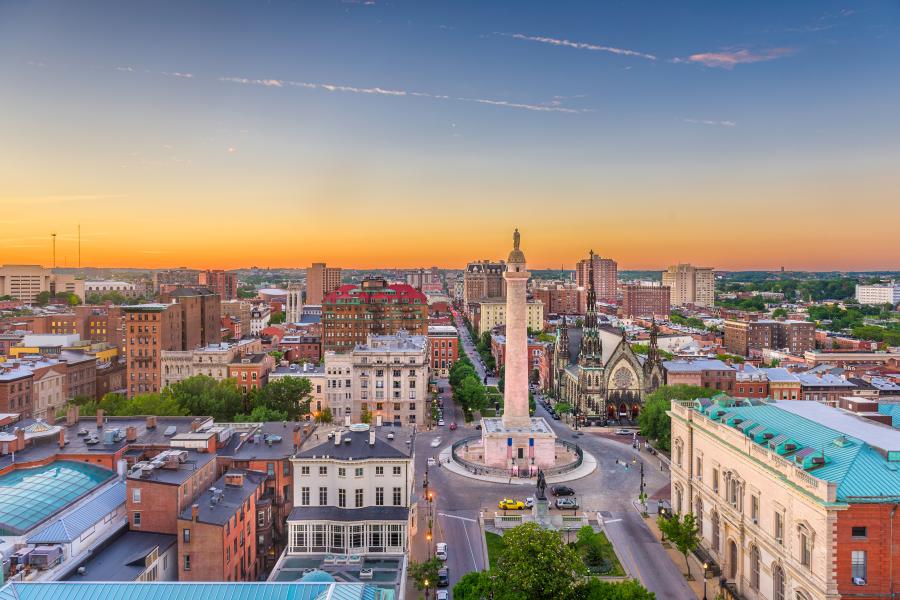- Name
- Hannah Robbins
- hlrobbins@jhu.edu
- Cell phone
- 667-232-9047
One in five Baltimore-area residents experiences food insecurity, more than a quarter have lost someone to drug overdose, and most residents trust organizations and businesses more than local government, a new survey from Johns Hopkins University's 21st Century Cities Initiative shows.
"Johns Hopkins has research aimed all over the world, and it's just as important to focus on Baltimore," said lead author Michael Bader, an associate professor of sociology at Johns Hopkins and faculty director of the 21st Century Cities Initiative, which brings together researchers from across Johns Hopkins to study urban issues. "Our hope is that this survey will help all of us better understand our home."
Co-designed by Johns Hopkins researchers in collaboration with community leaders, the inaugural Baltimore Area Survey attempts to address topics important to people who live there and will be published annually. The survey of 1,352 city and county residents, conducted by mail this summer, focuses on issues central to how people feel about and experience living in the area.

Image credit: Khamar Hopkins
Tellingly, the survey revealed differences in experiences and perceptions between Black and white residents. Black residents are more likely to fear the police, experience hunger, and grapple with inadequate transportation than are white residents, the analysis shows.
Other key findings include:
Food insecurity
- Roughly one in five Baltimore-area respondents experiences hunger because they don't always have enough money for food; two in five worry about running out of food.
- Half of Black respondents suffer from food insecurity compared to 15% of white respondents.
- Almost a third of Black respondents experience very low food security, as defined by the U.S. Department of Agriculture.
Policing
- Three-quarters of Black respondents fear the police questioning or arresting them or their loved ones, while three-quarters of white respondents report no fear.
- For more than a third of Black respondents, the fear affects their daily lives "some" or "a lot."
Transportation
- More than 20% of respondents have needed to reschedule appointments or cancel plans because of transportation issues.
- A larger share of respondents in the city than in the county have issues with transportation.
- Black respondents are twice as likely as white respondents to have their lives disrupted because of issues with transportation.
Drug addiction
- More than 40% of respondents know someone addicted to drugs.
- More than a quarter have had someone close to them die from an overdose.
- About 20% of city respondents know three or more people struggling with addiction.
Neighborhoods
- Roughly seven out of eight respondents are satisfied with their neighborhoods.
- More than 30% of city respondents think their neighborhood has improved over the past five years.
Public trust
- Though nearly 75% of respondents don't trust their local government, more than half trust local businesses and nonprofits.
- About 65% of respondents trust other people.
Entrepreneurship:
- One-third of Black respondents believe starting their own business would be more lucrative than working for someone else. Only 15% of white residents felt the same.
"The survey sheds light on how the legacy of racism and segregation in Baltimore continues to shape lives. Policing clearly places an emotional burden on Black communities, and the sheer level of food insecurity is alarming," Bader said.
Researchers were also struck by the amount of transportation insecurity in the city. More than 40% of city respondents reschedule appointments or miss events, change plans, feel down, worry about inconveniencing others, or believe that lack of adequate transportation impacts their relationships.
"Now that the Red Line is moving forward after years of being held up, it's important we understand how unreliable transportation affects people," Bader said. "It will be valuable to keep that in mind as the route and mode are finalized."
The research team will release additional reports over the next year diving deeper into the data.
"We hope the cutting-edge research by Johns Hopkins researchers will support the city's organizations, businesses, and public officials," Bader said.
Posted in Politics+Society








